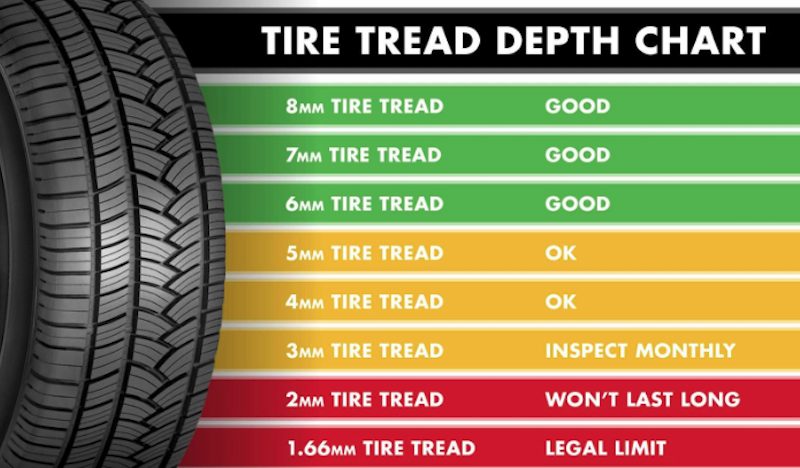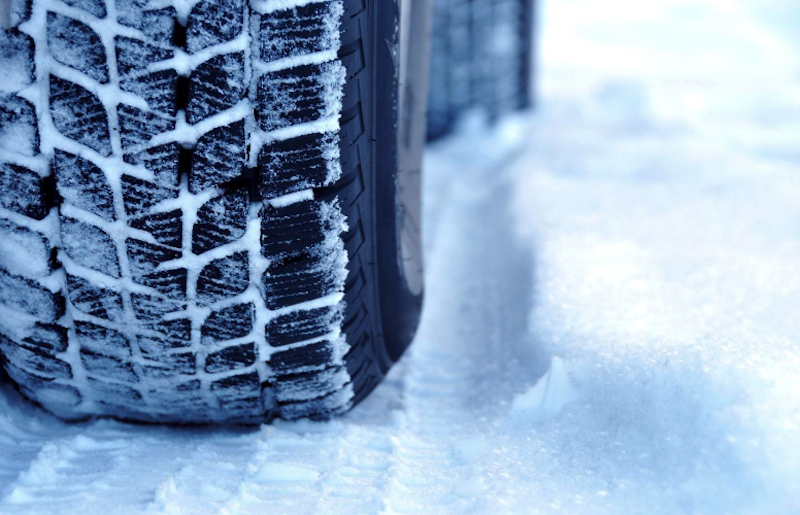Benefits of All-Season Tires: Are They Really Valuable?
Do the benefits of all-season tires make them more trustworthy? They may be used in any condition instead of a specialized one. Figure them out now!
Introduction
After choosing your car, you may suddenly realize that the tire can be the next step. However, as long as you understand the purpose of using them and their pros and cons, you never need to waste much time pondering.
This writing will let you know the benefits of all-season tires and others specific to each period. Keep reading before deciding on the right set for your vehicle!
What Are All-Season Tires?
All-season tires can handle all types of roads, whether it is summer or winter
An all-season tire is made of a rubber compound that provides optimal traction and performance in any temperature, even as low as 40 degrees Fahrenheit. It can be used yearly to propel water quickly when the road is wet.
“This type of tire usually has a directional spike, which is straight and smooth. They allow for increased grip and stability and eliminate some unnecessary noise. Compared to other types, all-season is also considered a tire that offers a quieter ride for the driver and has a longer life,” said by Robert, automotive expert at COR Wheels.

This highly versatile item can be used on various vehicles, including SUVs, trucks, and off-road vehicles.
Benefits of All-season Tires
Good Handling
The first advantage is the ability to operate flexibly at the time of year and in different road conditions without affecting performance. All-season tires always do their job well, be it the harsh, hot weather of summer or the cold of winter.
They can handle standing water on wheels through unique tread patterns, separating the water curtain, pushing them with centrifugal force, and minimizing the risk of wheel slip.
Longer Tread Life
Tire life is often determined by many factors, such as itself, vehicle type, frequently traveled road, driving habits, and routine maintenance. For example, if you always drive at high speed, carry heavy objects, and brake hard, the tire’s life will inadvertently be greatly reduced.
Tires typically have a 60,000 to 75,000-mile lifespan or about 4 to 5 years. On the other hand, the average life of an all-season tire can be up to 80,000 miles unless the tread is only 2/32 inches; you need to replace it.
When the tread is about 2/32 inches (about 2 mm), you must change the tire immediately
This advantage comes from the high-strength rubber material and the special tread pattern design, which helps them to handle all kinds of situations and last longer. However, you should check them regularly, like maintaining the correct pressure, and rotate them every 6,000 to 8,000 miles.
Quite and Smooth Ride
The good elasticity of the material can absorb and disperse the force well, which limits collisions between molecules, air, or road surfaces. As a result, crash sounds, such as hissing or humming, are also limited, ensuring your journey is quite quiet from them.
Manufacturers also balance the void ratio for this tire by applying a variety of tread sizes to add a white sound. They both help shake off mud, water, and snow (if any) and reduce tire noise levels. As a result, you will have a quiet and relaxing driving experience.

Affordable
Each tire usually costs from $50 to $200, depending on the model and needs of use (there are specialized types for snow roads). Based on average US prices, four tires can cost around $600, excluding installation fees.
If you often drive through regions with all four seasons’ typical weather conditions, you will realize the value of the all-season set. They can cross the hot streets of summer or the black ice of winter and still maintain good performance and traction.
That means you can save money on fuel and unnecessarily need a new set of tires every season, except for when they are truly rigorous seasons. Furthermore, its lifespan is above average enough to allow you to drive about 20,000 miles before replacing it with a new one.
When Do You Need a Dedicated Tire?
Winter tires can withstand low temperatures, good traction, and snow removal (Source: Stockton Wheel Service)
The limit temperature for most all-season tires ranges from -10°C to 30°C. Therefore, if your area exceeds this limit, they will become unsuitable, for example, heavy snow or blizzards. Accordingly, that time is when you need a more specialized set of tires, such as:
| Types of tire | Pros | Cons |
|---|---|---|
| Summer | > Withstands temperatures above 40 degrees > Delivers high performance and traction in bends, braking, and acceleration > Suitable for sports cars and warm climates (Hawaii, Florida, or Southern California) | > Easy to wear > Has a short tread life |
| Winter | > Maintains agility and traction in cold temperatures > Has unique spikes that can "plug deep" into the snow > Allows the installation of additional metal studs for increased slip resistance > Suitable for areas with hard, heavy snowfall or freezing for long periods | > Easy to wear due to soft rubber > Grips deeply on the road (without snow), causing cracks, potholes and tire damage |
| Off-road | > Handles rough terrain, strong impacts, rocks, and mud > Has heavy-duty tread, almost maximum grip on loose surfaces > Resists shocks and impacts thanks to reinforced sidewalls > Suitable for trucks and off-road vehicles or adventure SUVs | > Noisier than other types > Short lifespan > Consumes a lot of fuel |
Best Traction
The benefits of all-season tires include good traction and quietness in various tough conditions, long life, and a reasonable price tag. It would be best to use specialized tires for the best traction for weather that exceeds its temperature range.
Regardless of your type, you should regularly check and maintain them according to their recommendations to ensure stable performance and safe trips!

